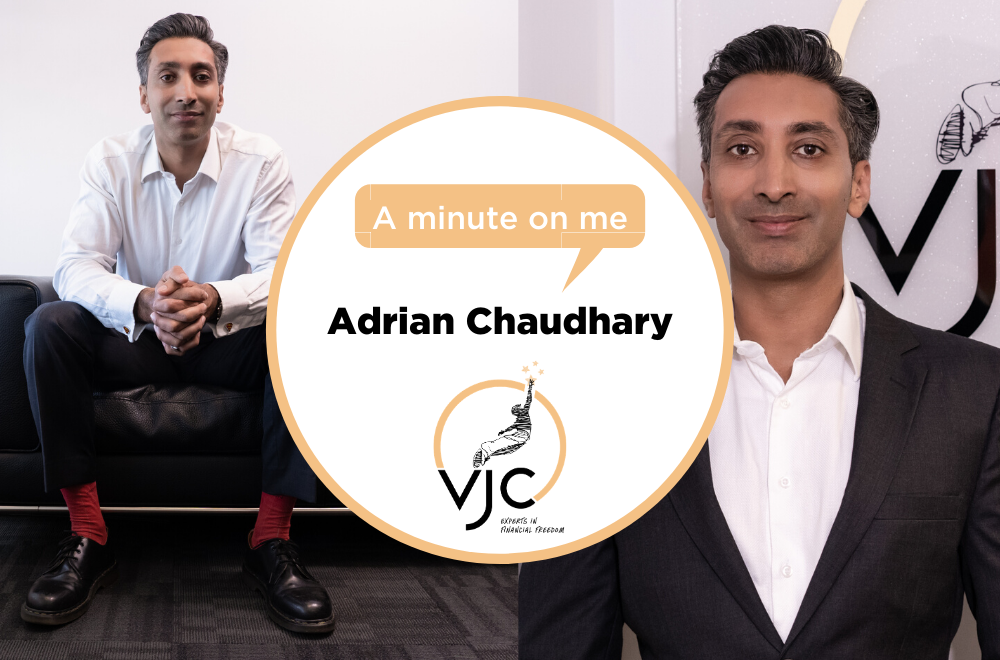After almost 30 years in the financial advice industry, Adrian Chaudhary has a few tips on how to build and grow a business. One of the key elements is creating a great team that you can trust.
Adrian shares his insights on how to build a great team and the role that karma plays in business success.
Tell us a little bit about your business and the type of work that you do?
At VJC we offer an integrated advice and service to our clients, from accounting to wealth management. What that means is that we are able to offer a personalised end-to-end solution to our clients. For example, we may be talking to a client about an accounting-related problem, but, as we are also across their financial planning goals, we can quickly see how this would impact their wealth matters. In many other firms, there are two different people doing those roles so the hand off wouldn’t be as seamless or timely.
It’s really a boutique business that we have. We are mentoring our clients in all the areas that we touch. For a lot of our clients, we have a business and personal relationship, so we tend to give a lot of non-financial advice. I give a lot of advice to people on their personal matters, because they feel comfortable with me doing that.
What would you say is the best part about being a financial adviser?
Being a financial planner is very fulfilling, the greatest moments are when you hear that a client tells people that your guidance has positively impacted and improved their lives.
It is also great to see the penny drop for a client i.e. when they learn something new or finally understand what they need. We live in a world where people want everything quick and simple, so you work with clients to break down what they need to do to meet their goals and you find out they haven’t considered many of the steps required.
These are the moments that really highlight to clients the value of getting quality advice from a financial adviser.
What are some of the key challenges facing you and your clients at the moment?
There’s just so much uncertainty with COVID-19. It's clear that nobody really knows how long this disruption will continue for, we are all travelling in uncharted waters and that uncertainty is impacting on business. Most commonly the consensus is that the disruption is for three to six months, as a business owner we are planning and making decisions on that basis. How will clients be affected and how many will be affected is top of mind, obviously the longer this disruption lasts the greater the effect on our business and our clients. I see a lot of strong clients and good businesses affected, it’s sad.
Do you see any positives from this experience we are all going through?
It’s been interesting to observe how businesses are responding to the pandemic. I see most businesses innovating and improving their operations, service offerings and using better technology. This means that they are going to emerge leaner, more productive and profitable.
And, more broadly, I think that the world itself will emerge from this with some positives. We've already seen a decrease in pollution around the world, blue skies and cleaner air is not something we've been able to achieve before this crisis. We may see a reemergence of a domestic manufacturing industry to reduce our reliance on China. Interestingly the longer that takes the more likely changes will imbed and occur.
What are some of the tools that you use to run your business?
You can't run a business without people and technology, you want young minds and software, so you regularly evolve. We use a good practice management software and other add-ons so we know:
- What has been said,
- What has been done,
- What needs doing,
- Who is supposed to be doing it!
Technology makes lists, communication, job flow and filing efficient and easy.
What are your thoughts on the stimulus package?
I think that the stimulus package is a well targeted package. The government has acted with the speed that was needed, overall they've done as good a job as they can.
From a small business perspective, which is my specialty, the key things you need are cash, cash flow, and confidence. The measures that have been introduced, like the business boost (the PAYG measures) and the job keeper and job seeker are positive as they are giving money to people, which will ultimately help the cash flow of a business. For the majority of small businesses, the confidence to invest in assets and lend money is just not there to take advantage of some other measures.
What is the best piece of advice you’ve ever received?
My father used to always say to me "you never speak about anyone to other people - your reputation can be destroyed by doing that.” I liken that into my understanding of karma – live under the principles of not doing something to someone that you don’t want done to you.



.png)
